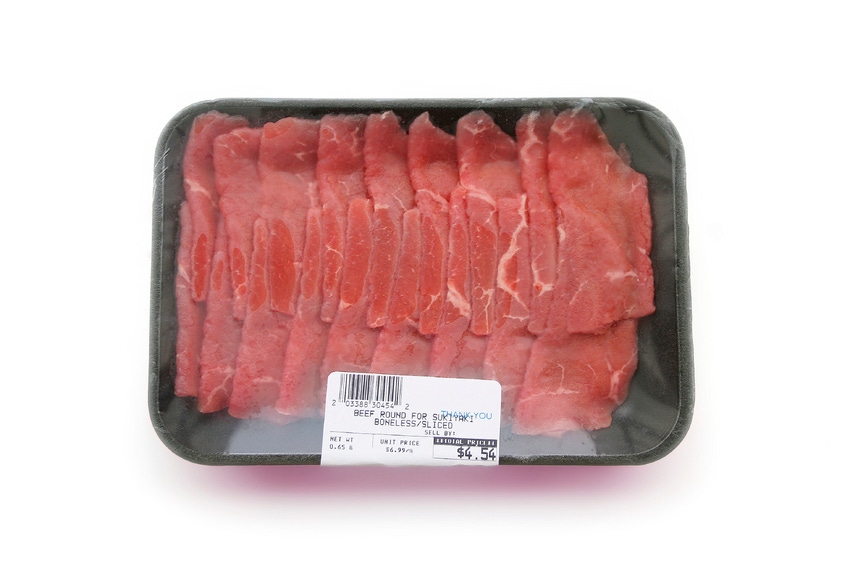Why COOL needs to go; guest blog by John Maddux
June 24, 2015

Readers:
This week’s BEEF Editor’s blog is a guest editorial written by Nebraska rancher John Maddux. Country-of-origin labeling (COOL) has reached fever pitch—Canada recently released its list of products it intends to place retaliatory tariffs on, and Mexico is expected to do so soon. The House has voted to repeal COOL and the Senate is considering the law now. Here are Maddux’ arguments on why COOL is a failed experiment.
Why COOL needs to go; By John Maddux
The program to discount Canadian and Mexican livestock entering the U.S. must come to an end. Far from the disingenuous arguments provided by proponents of mandatory country-of-origin labeling (COOL), the law was never about distinguishing meat products in the market by country of origin. For such an outcome, all meat sold in the U.S. at the retail and restaurant points of sale would have to have been affected, including imports from Australia, New Zealand, Brazil, Uruguay, and other countries. COOL was simply an attempt to exclude or diminish the presence of Canadian and Mexican live animals in the U.S.
And that is why the WTO ruled against the U.S. four times. The essence of COOL is discriminatory because it does not implement what any legitimate origin-labeling program should accomplish but rather what the proponents intended: discrimination against live animals. People do not stop by the store to buy a pig for dinner. They buy a loin or a chop. American consumers have unknowingly become pawns in an attempt to discriminate against Canadian and Mexican livestock through the North American Livestock Labeling Program that COOL has created.
The House of Representatives voted 300-131 to repeal the law, the Senate is holding hearings on repealing the law, and yet the proponents of COOL are unwilling to walk away, lay down their banners and admit they have been wrong from the beginning. Were the issue about consumer choice in the marketplace, simply labeling food at the point of transformation from live animal into usable, retail parts would be the focus.
We all know that Members of Congress, whether House or Senate, champion those issues brought to them by constituents. But not all ideas are good ones, not all should become law, and on the occasion a bad idea makes it into statute, it is the imperative of Congress to correct the mistake. And just to be clear, COOL was a mistake from the minute it was drafted.
The COOL program has not come cheaply. One third of merchandise exported from America goes to our two bordering neighbors, totaling $1.2 trillion annually. 14 million American jobs rely on this trade. $3 billion in damages has been assessed and our largest trading partners have used these very calculations to demonstrate the merits of their case.
But there is an additional and potentially longer-term cost to this debate. Every time the industry pushes to reverse COOL, each time we visit an office to explain why the law is bad, and why the WTO rejected it, we burn political capital.
Expending vast amounts of political capital to solve a fraternal conflict inside the industry is wasteful at best, and dangerous in the long run. There is no shortage of impending and much costlier regulations on the horizon. As long as we are hammering on COOL, we are not talking about TPA, we are not pushing back on the proposed dietary guidelines, and we are not preventing the EPA from regulating every ditch and puddle in America.
This must stop. Rural constituencies are small enough already without frittering our effective but limited political capital on something that was a bad idea from the beginning and has been ruled illegal. And if the initial economic costs and the expenditure of political capital were not enough, we are also facing significant tariff retaliation. Logic and sanity must be restored within the industry.
The North American Livestock Labeling Program is done. It is time to stop burning our political capital on a dead issue, fully repeal it, and move on to the issues which could impact our industry for many generations ahead. The integrated North American market has fostered deep relationships throughout the industry, and we all know people north and south of our borders. We need to make peace with our close friends and neighbors and bring this unfortunate experiment to an end.
Editor's note--John Maddux is the fourth generation manager of his family ranch operations in the Sandhills of Nebraska. In addition to his daily ranch duties, he is a past member of the Nebraska Grazing Lands Coalition; the Nebraska Investment Council, which is responsible for managing the state’s 9 billion in pension assets; and State Bank Board of Directors. Prior to returning to the ranch, John was employed by Goldman Sachs of New York in fixed income sales and trading, and prior to that worked for Elanco selling herbicides. He has an undergraduate degree in animal science from the University of Nebraska and an MBA in finance from the University of Chicago. John is married to his wife Julia, with two boys; Taylor, 6 and Thomas, 3.
You might also like:
60 stunning photos that showcase ranch work ethics
7 U.S. cattle operations honored for stewardship efforts
What's the least expensive way to breed cows? It might not be what you think
Could 2015 be a profit repeat? Harlan's numbers suggest yes
How to prevent & treat pinkeye in cattle
5 resources for choosing the best method to control noxious weeds
You May Also Like


.png?width=300&auto=webp&quality=80&disable=upscale)
